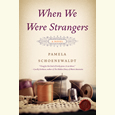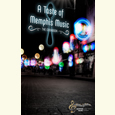Pictures of a Life
In Richard Alley’s Amelia Thorn, a woman of her time becomes a woman ahead of her time
Memphis writer and editor Richard J. Alley takes readers on a tour of one photographer’s remarkable life, as well as the society of 20th-century Memphis and Mississippi, in his second novel, Amelia Thorn.

Alley structures the book around Amelia’s photographs, which serve as markers of her life, ranging from her first photograph of her father to a final image of a slightly confused woman in late middle age. Each picture leads to a memory, and memories are what Amelia shares with an interviewer as a prelude to an exhibition of her photographs in a Memphis gallery.
Amelia begins her story with her wedding day during World War II. Her fiancé, Edward, is leaving to serve in the South Pacific, and like many young soldiers he wants to marry before he goes, to give him something to live for. Their plan is to leave Mississippi, marry in Memphis, and then go on to San Diego, where Amelia will have the support of other military wives. But while at breakfast in a small café before their wedding, the bag with all their money is stolen. The kindness of the café owner and his family touches Amelia deeply, as does the city itself. She realizes that she can’t travel with her husband to California but will wait for him in Memphis. Later, despite her world travels, Memphis becomes her touchstone.
Amelia lives many lives in her time. She’s born a privileged daughter in small-town Mississippi and then becomes part of the working class in Memphis. For a period of time, she steps outside of society altogether. Finally, a fateful meeting with a woman photographer shows her a different way to live: as an independent career woman.
Chance and timing play major roles in Amelia Thorn: Two daughters of the same father have different lives due to the color of their skin. A pilot suffers a heart attack right before takeoff instead of in the air. A trip home comes a few minutes too late to say goodbye.
 As in his 2015 novel, Five Night Stand, Alley’s writing here is clear and filled with memorable detail. His characters are complex, and he reminds readers that even the most unlikable have backstories that don’t excuse their actions but may help to explain them. Amelia’s harsh, strict grandmother, for example, is married at 16 to a much older Civil War veteran, a marriage that combined the “two largest land-owning families in Mississippi.” Her job is to provide an heir:
As in his 2015 novel, Five Night Stand, Alley’s writing here is clear and filled with memorable detail. His characters are complex, and he reminds readers that even the most unlikable have backstories that don’t excuse their actions but may help to explain them. Amelia’s harsh, strict grandmother, for example, is married at 16 to a much older Civil War veteran, a marriage that combined the “two largest land-owning families in Mississippi.” Her job is to provide an heir:
“What Grandmother bore, alone, was the brunt of one miscarriage after another. She was made to try again and again, the Colonel’s hot breath stinking of cigar and whiskey in her face as he methodically pummeled his seed into her until, at long last, that sticky kernel took root.”
The child of that union, Amelia’s father, spends his life wishing he were somewhere else, doing something else, with someone else. It is not until the next generation, with Ameila, that the chains of the past are stretched, if not fully broken. Telling her story as an old woman, Amelia takes a hard, unromantic view of her past, knowing that while there may be regrets, she got to live life on her own terms.

Faye Jones, dean of learning resources at Nashville State Community College, writes the Jolly Librarian blog for the college’s Mayfield Library. She earned her doctorate in 19th-century literature at Indiana University of Pennsylvania.


